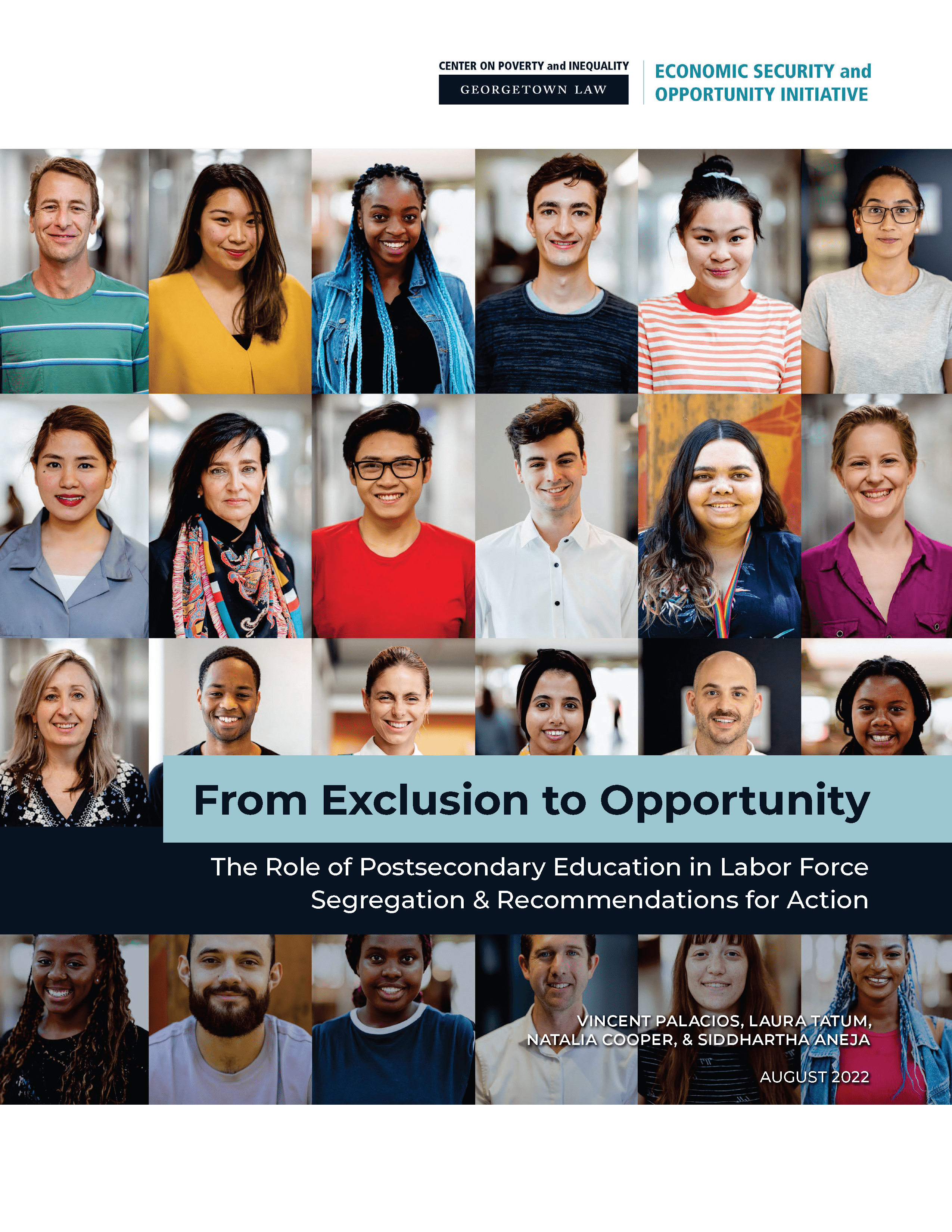A four-year postsecondary degree offers opportunities for a higher income and upward economic mobility. However, postsecondary education—historically inaccessible to people of color and women—also plays a key role in reproducing and amplifying societal inequities by sorting students into specialized fields of study by race and gender, contributing to a segregated labor force. This report examines the link between postsecondary field of study and labor market segregation using an original quantitative analysis. This report presents four principles and corresponding recommendations that postsecondary institutions and policymakers can use to reduce racial and gender segregation across fields of study, increase degree attainment, and ultimately, ameliorate labor market segregation.

